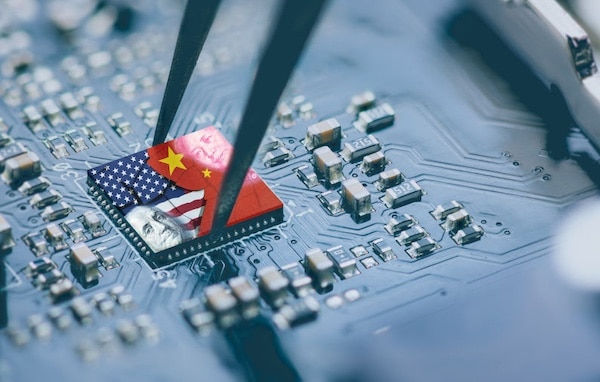An interesting new article in the prominent American journal, “Foreign Affairs”, by three academics from Georgetown University, argues that “Washington should place less emphasis on slowing down China and more on improving its own innovative prowess.”
The authors stress how, with the most advanced chip-making, the quest is to secure yet higher operational speed using still less energy. Meanwhile, much can be achieved using tag-team-chips, where multiple less powerful chips, known as chiplets can form a single, higher-performing package. Other related strategies can also be used.
China is making effective use of these and other approaches as it works around the stated objective of U.S. chip export controls, which are aimed, it is said, at: denying China the cutting-edge AI capabilities it could use to modernize its nuclear and conventional weapons. Although this is meant to be the laser-focus of U.S. containment strategies, in fact, slowing China’s general high-tech development, is central to America maintaining its competitive economic advantage, according to U.S. National Security Advisor, Jake Sullivan.
The writers also argue that this fundamental emphasis on export controls is suppressing U.S. high-tech access to the massive, rapidly advancing Chinese market, thus denying serious income to that sector, while redirecting a large segment from the huge pool of Chinese spending power towards boosting Chinese chip development. Moreover:
By preventing firms, in Japan, the Netherlands and the United States which have a virtual lock on the tools needed to make the most advanced chips from selling their equipment to China, the U.S. is driving revenue towards China’s own equipment makers. Given the current rate of progress it is likely that China will, before long, be able to manufacture the equipment needed to fabricate advanced semiconductors.
The authors conclude by emphasising that:
Driving U.S. innovation should be Washington’s top priority when competing with Beijing. Given China’s size, economic heft and scientific sophistication, the U.S. government has only limited capacity to obstruct its rival’s technological development.
Could this apt advice be followed? Don’t hold your breath.
When it comes to China, Washington has demonstrated an avid preference for retaining the Tonya Harding mode of problem solving in their geopolitical toolkit. Thirty years ago, Ms Harding was the American figure skating champion but she feared she might be toppled from that number one position by a rising rival, Nancy Kerrigan. A scheme was hatched and executed to launch an attack on Ms Kerrigan, which seriously maimed her legs thus taking her out of the competition. For a time.
Richard Cullen is an Adjunct Professor in the Faculty of Law at the University of Hong Kong. He was previously a Professor in the Department of Business Law and Taxation at Monash University in Melbourne, Australia.

